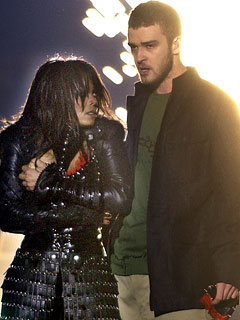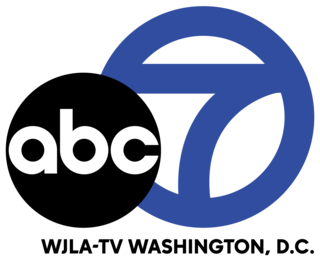Related Research Articles

V-chip is a technology used in television set receivers in Canada, Mexico, Brazil, and the United States, that allows the blocking of programs based on their ratings category. It is intended for use by parents to manage their children's television viewing based on blocking systems. Televisions manufactured for the United States market since January 2000 are required to have the V-chip technology. Since the idea for blocking programs in this way was patented and tested in Canada by Brett West and John P. Gardner in 1994, many devices using V-chip technology have been produced.

Children's television series are television programs designed specifically for children. They are typically characterised by easy-going content devoid of sensitive or adult themes and are normally broadcast during the morning and afternoon when children are awake, immediately before and after school schedules generally start in the country where they air. Educational themes are also prevalent, as well as the transmission of cautionary tales and narratives that teach problem-solving methods in some fashion or another, such as social disputes.

Leo Brent Bozell III is an American conservative activist and writer. Bozell is the founder of the Media Research Center, an organization whose stated purpose is to identify liberal media bias.
The Media Research Center (MRC) is an American conservative content analysis and media watchdog group based in Herndon, Virginia, and founded in 1987 by L. Brent Bozell III.

The Super Bowl XXXVIII halftime show, which was broadcast live on February 1, 2004, from Houston, Texas, on the CBS television network, is notable for a moment in which Janet Jackson's right breast and nipple—adorned with a nipple shield—was exposed by Justin Timberlake to the viewing public. The incident, sometimes referred to as Nipplegate or Janetgate, led to an immediate crackdown and widespread discourse on perceived indecency in broadcasting.
Television content rating systems are systems for evaluating the content and reporting the suitability of television programmes for minors. Many countries have their own television rating system and countries' rating processes vary by local priorities. Programmes are rated by the organization that manages the system, the broadcaster, or the content producers.

Laguna Beach: The Real Orange County is an American reality television series that originally aired on MTV from September 28, 2004, until November 15, 2006. The series aired for three seasons and was primarily focused on the personal lives of several students attending Laguna Beach High School. Its premise was originated with Liz Gateley, while Tony DiSanto served as the executive producer.
The Parents Television and Media Council (PTMC), formerly the Parents Television Council (PTC), is an American media advocacy group founded by conservative political pundit L. Brent Bozell III in 1995, which advocates for what it considers to be responsible, family-friendly content across all media platforms, and for advertisers to be held accountable for the content of television programs that they sponsor. The PTMC officially describes itself as a non-partisan organization, although the group has also been described as partisan and socially conservative.

WJLA-TV is a television station in Washington, D.C., affiliated with ABC. It is one of two flagship stations of Sinclair Broadcast Group, and is also sister to Woodstock, Virginia–licensed low-powered, Class A TBD station WDCO-CD and local cable channel WJLA 24/7 News. WJLA-TV's studios are located on Wilson Boulevard in the Rosslyn section of Arlington, Virginia, and its transmitter is located in the Tenleytown neighborhood of northwest Washington.

"PTV" is the fourteenth episode in the fourth season of the American animated television series Family Guy. It originally aired on the Fox network in the United States on November 6, 2005. The episode sees the Federal Communications Commission (FCC) censor the shows on television after a controversial wardrobe malfunction at the Emmy Awards. Peter starts to create his own TV network which he calls PTV, broadcasting classic shows unedited and uncut, as well as original programming. PTV is a big success, and Stewie and Brian join him, creating shows for the network. Lois calls the FCC to close PTV as she is concerned how children would be influenced by Peter's programming. Not only do the FCC close down the network, but they also start censoring the citizens of Quahog, so the Griffin family travels to Washington, D.C., and convinces Congress to have the FCC's rules reversed.
The TV Parental Guidelines are a television content rating system in the United States that was first proposed on December 19, 1996, by the United States Congress, the American television industry, and the Federal Communications Commission (FCC). The guidelines went into effect by January 1, 1997, on most major broadcast and cable networks in response to public concerns about increasing amounts of mature content in television programs. It was established as a voluntary-participation system, with ratings to be determined by the individual participating broadcast and cable networks.

The Allbritton Communications Company was an American media company. Based in Arlington, Virginia, Allbritton was the leading subsidiary of Perpetual Corporation, a private holding company owned by the family of company founder and former Riggs Bank president Joe L. Allbritton. Joe’s son, Robert L. Allbritton, was the Chairman and CEO of Allbritton Communications from 2001 to 2014. He is currently the owner of Capitol News Company, the parent company of political newspaper and website Politico.

The American adult animated sitcom Family Guy has been the target of numerous taste and indecency complaints. The show is known to include offensive jokes including racial humor and violent, gory, and disturbing images.
Mobile television is television watched on a small handheld or mobile device, typically developed for that purpose. It includes service delivered via mobile phone networks, received free-to-air via terrestrial television stations, or via satellite broadcast. Regular broadcast standards or special mobile TV transmission formats can be used. Additional features include downloading TV programs and podcasts from the Internet and storing programming for later viewing.

A coupon-eligible converter box (CECB) was a digital television adapter that met eligibility specifications for subsidy "coupons" from the United States government. The subsidy program was enacted to provide terrestrial television viewers with an affordable way to continue receiving free digital terrestrial television services after the nation's television service transitioned to digital transmission and analog transmissions ceased. The specification was developed by the National Telecommunications and Information Administration (NTIA), with input from the broadcast and consumer electronics industries as well as public interest groups.
The Family and Consumer Choice Act of 2007 is a proposed bill introduced by United States Representatives Daniel Lipinski (D-IL-3) and Jeff Fortenberry (R-NE-1) intending to allow families to choose and pay for only the cable TV television channels that they want to watch so that it will be easier to prevent their children from cable content they consider indecent. In addition, the bill would impose the same decency standards already in place on broadcast television onto cable channels, as between the hours of 6:00 a.m. and 10:00 p.m. in the Eastern and Pacific time zones, any indecent type of program, including programs rated "TV-14" or "TV-MA" under the TV Parental Guidelines, may not be broadcast. Lipinski has stated that it will provide parents, who are "the first line of defense in protecting their kids... more help". Currently, all cable television operators in the United States provide their channels in packages without offering packages containing only educational, news, family, or sports channels.
"Family Gay" is the eighth episode in the seventh season of the American animated television series Family Guy. It originally aired on the Fox network in the United States on March 8, 2009. In the episode, Peter becomes temporarily gay after participating in a medical drug test.
The broadcast of educational children's programming by terrestrial television stations in the United States is mandated by the Federal Communications Commission (FCC), under regulations colloquially referred to as the Children's Television Act (CTA), the E/I rules, or the Kid Vid rules. Since 1997, all full-power and Class A low-power broadcast television stations have been required to broadcast at least three hours per-week of programs that are specifically designed to meet the educational and informative (E/I) needs of children aged 16 and younger. There are also regulations on advertising in broadcast and cable television programming targeting children 12 and younger.
Paramount Global is an American multinational entertainment conglomerate that was the subject of criticisms and controversies about its products and services. Criticism of Paramount Global has included the former Viacom Inc.'s announced plans of looking into splitting the company into two publicly traded companies. The company was not only dealing with a stagnating stock price, but also the rivalry between Leslie Moonves and Tom Freston, longtime heads of MTV Networks. In addition, the company was facing issues after MTV was banned from producing any more Super Bowl halftime shows after the Super Bowl XXXVIII halftime show controversy in 2004.
The 2016 United States wireless spectrum auction, officially known as Auction 1001, allocated approximately 100 MHz of the United States Ultra High Frequency (UHF) spectrum formerly allocated to UHF television in the 600 MHz band. The spectrum auction and subsequent reallocations were authorized by Title VI of the payroll tax cut extension passed by the United States Congress on February 17, 2012.
References
- ↑ "New Group Opposing Government Control of TV Launched Today; TV Watch to Promote Use of "Parental Controls"" (Press release). Television Watch. 2005-05-04. Retrieved 2007-07-03.
- 1 2 Eggerton, John (2005-05-09). "Big Three Fight Indecency". Broadcasting & Cable. Retrieved 2008-04-19.
- ↑ Microsoft Word - Jim Dyke Bio.doc
- ↑ Wolf Blitzer, Mary Snow (2005-07-05). "July 5, 2005". Wolf Blitzer Reports (Transcript). CNN.
- ↑ "The Parents Television Council's Release is Flawed by Faulty Analysis and Biased Methodology" (Press release). Television Watch. 2007-04-19. Archived from the original on 2007-09-01. Retrieved 2007-07-03.
- ↑ "Parents Send Unmistakable Message to Congress: Keep Your Hands Off My Remote!" (Press release). Television Watch. 2007-06-25. Retrieved 2007-07-03.
- ↑ Eggerton, John (2005-07-19). "V-Chip-Setting Contest Planned". Broadcasting & Cable. Retrieved 2008-04-19.
- ↑ McManus, Michael (2006-03-02). "Group: Children's TV isn't kid stuff". CNN.com. CNN . Retrieved 2007-07-27.
- ↑ "Government Needs To Listen To Parents" (Press release). Television Watch. 2007-06-26. Retrieved 2007-07-27.
- ↑ Eggerton, John (2006-03-02). "PTC Slams Kids Shows". Broadcasting & Cable . Retrieved 2007-08-24.
- ↑ "Parents Group Warns Against 4 Fox Shows". USA Today . Associated Press. 2005-10-19. Retrieved 2007-08-13.
- ↑ TV Watch Survey of Parents Topline (PDF). Television Watch (Report). 2007-06-25. Archived from the original (PDF) on 2007-07-04. Retrieved 2007-07-27.
- ↑ Hambrick, Greg (2008-08-27). "Charleston-based TV Watch monitoring the monitors at FCC, PTC". Charleston City Paper. Retrieved 2008-11-12.
- ↑ TV • watch
- ↑ TV • watch
- 1 2 McFarland, Melanie (2005-05-06). "Who gets to pick what we watch? Tune in". Seattle Post-Intelligencer . Retrieved 2007-07-03.
- ↑ Eggerton, John (2006-09-08). "TV Watch Extends Olive Branch To PTC". Broadcasting & Cable. Retrieved 2008-04-19.